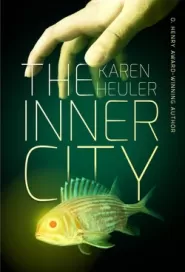Glorious Plague
Hallie is missing — and so are thousands of others. Everywhere people are singing — climbing to the rooftops, to the bridges, to lamp post and road sign, steeple and water tower, singing gloriously, triumphantly, tirelessly — and dying.
Hallie’s mother, Dale, goes to Manhattan to search for her. She drives in from rural New Jersey, passing abandoned cars and trucks, to make her way to the jammed George Washington Bridge, rejoicing with hymns and gospel and rock and opera.
The plague moves swiftly, and the city’s survivors form new communities, dealing with the rotting corpses, trying to re-establish a new infrastructure for the new order.
And odd things happen — angels come to earth, Christ drags his crucifix around Rockefeller Center, the Indian god Ganesh runs for mayor — but it doesn’t seem remarkable to the survivors. A man falls in love with a mermaid and decides to throw in his fortunes with hers, only to be attacked by an animal liberated from the zoo. Politics begins to assert itself, as does real estate issues, and it matters what — and who — you believe. It’s time to choose sides.
Readers also enjoyed
Karen Heuler
Karen Heuler's stories have appeared in over sixty literary and speculative journals and anthologies, from Alaska Quarterly Review to Weird Tales. She has won an O. Henry award, was short-listed for the Iowa Short Fiction award, nominated for Pushcart and Best American Short Story awards, and was a finalist for the Bellwether Award and the Shirley Jackson Award. The New York Times called her first collection, The Other Door, "haunting and quirky." Her novels, including The Soft Room and Journey to Bom Goody, introduce readers to a world of unexpected stories and choices, some of them clear and some of them tricky.










